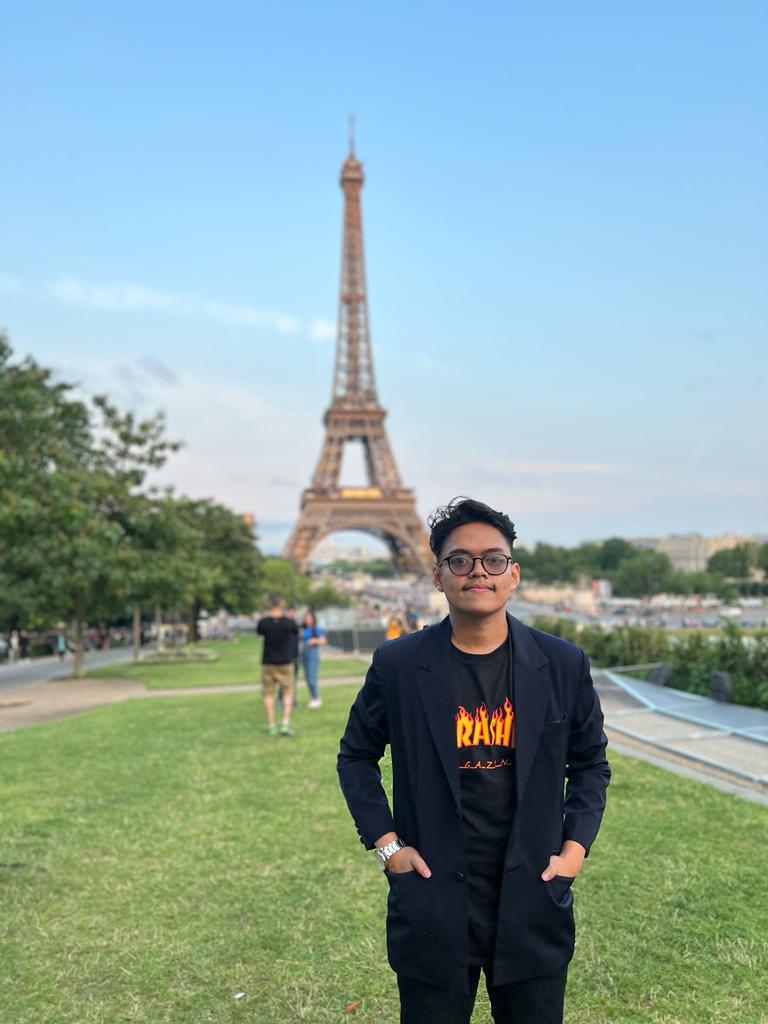Written by: Briantara Revidinda Putra (15119008)
“I am pleased to announce that you have been selected as a recipient of the French + Science Scholarship 2023,” says an email from Campus France only one day after my final interview. It was like a cream come true!
The French + Science, or F+S, was a programme initiated by Campus France, under the French Embassy of Indonesia. They offered various courses at different cities in France. I was selected to participate in a course focusing on Science and Technology of the Sea at Brest, a port city in the region of Bretagne, bordering directly with the Atlantic ocean at the north-western part of France. I got the information regarding the scholarship from our lecturer, Bu Gaby, when I was acting as one of the assistants in Hydrography II module. Apparently, Brest was the city where she did her Master’s Degree course!
After submitting my CV and motivation letter as required, I received an announcement to attend an interview that finally brought me to be selected as a recipient of the scholarship. It would be my first experience ever to go abroad and, wow, to Europe! The programme was run from 19 June to 7 July 2023. The dates of the programme motivated me to complete my Undergraduate Thesis quickly and submit it on time. My thought was, if I could receive the scholarship, I would be leaving after finishing my obligation as an undergraduate student.
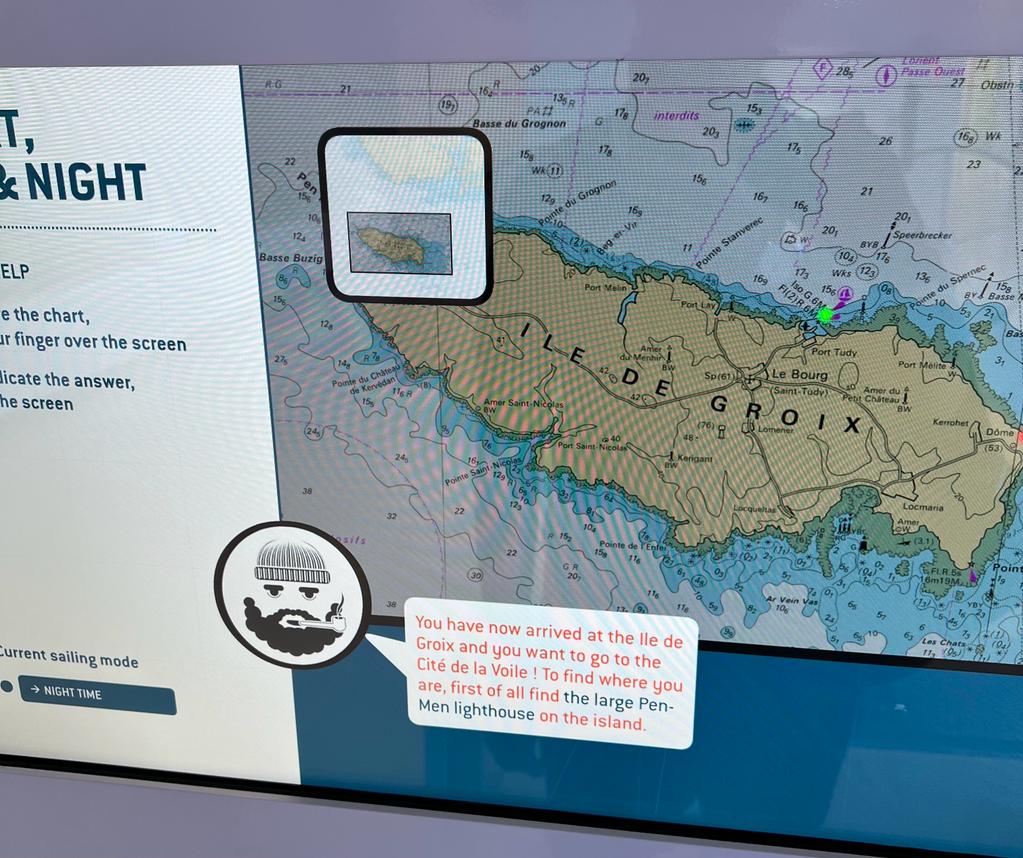
A sneak peek to one of the excursions. Who doesn’t love a good-old Nautical Chart!
The programme was fully funded by Campus France, covering accommodation, transportation, insurance, student visa, pocket money, and the French courses. The F+S Programme is a three-week programme designed for international English speaking students to be introduced to a beginner level of French language while visiting companies and state-of-the-art laboratories related to our programme’s theme. As I have mentioned, our theme was Science and Technology of the Sea. We were included in conferences on current and future challenges in facing our profession in sea-related engineering. The programme also included a wide selection of excursions and cultural visits with several objectives, namely: (1) To expose the participants to a research-based educational practice that encourages experiments, knowledge sharing, discovery, debates, and reflection on the development of science and technology, (2) To deliver a unique opportunity to build up a strong network in the scientific field, (3) To acquire and improve communication skills in French, and (4) To discover one of the most beautiful regions in France, which is Brest, Bretagne.
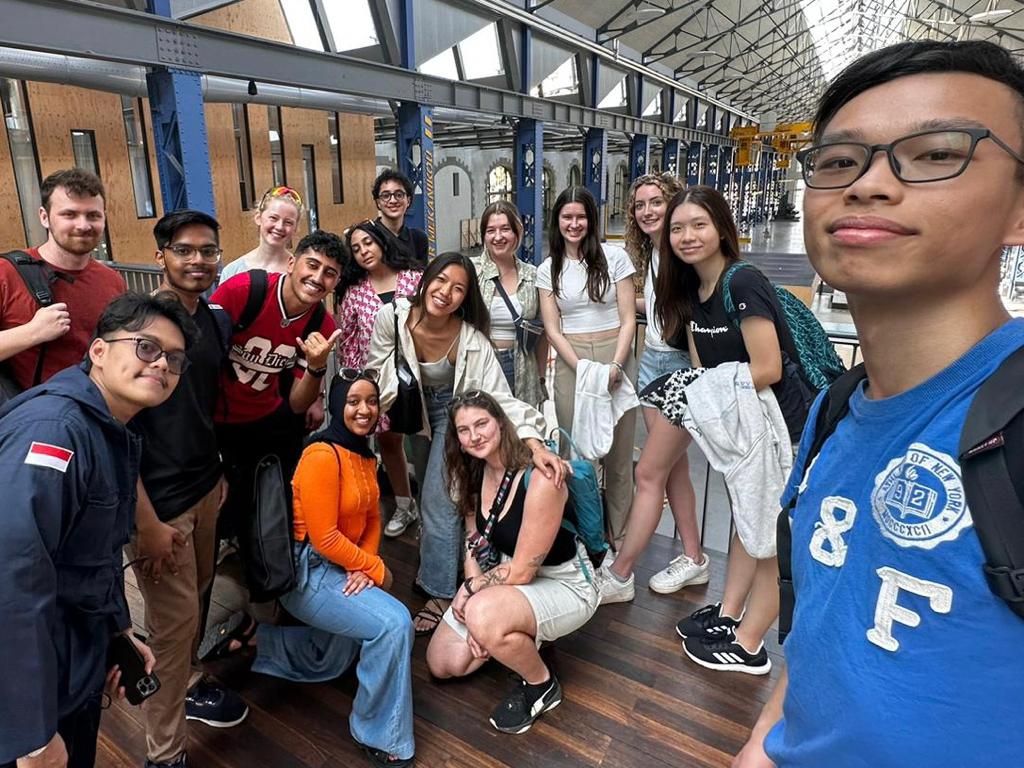
Participants of the F+S Scholarship in Brest, France
In the Science and Technology of the Sea theme, I was the only Indonesian participant, so it was my chance to get to know and share insights with fellows from several countries around the world. I made new friends from Canada, India, Australia, Norway, Estonia, United Arab Emirates, Saudi Arabia, Jordan, Hong Kong, and, of course, France! It was such a challenge! Since the announcement of my acceptance, I had approximately two months to prepare for my departure. I used this time to take care of the necessary documents, such as passports, visas, and other required files. In addition, I tried to learn the basics of French language through books, YouTube, and the Duolingo app. I also did a research on Brest so I knew where to explore once I have arrived there.
I departed from Soekarno Hatta Airport (CGK), Jakarta, to Charles de Gaoulle Airport (CDG), Paris, with a transit at Incheon Airport (ICN), South Korea, on 17 June 2023. The whole journey took a total of about 21 hours! I arrived at Paris on Sunday, 18 June 2023, at 16:10 French time. I had plenty of time before my departure to Brest, which was scheduled for 23:59. I thought, it wouldn’t be official if I didn’t visit and take pictures at Paris’ famous landmarks! So, a few days before my departure, I contacted PPI Paris (Indonesian Students Union in Paris) to ask for help. I met Gede and his brother, Dealopa, who were very humble and helped me a lot when I was in Paris. He took me to visit the Eiffel Tower, Arc de Triomphe, the Louvre Museum, and l’Eglise Saint-Eustache. For me, the beauty of Paris lies on the uniformity of the buildings. The whole city amazed me and I still couldn’t believe that I was in it!
It was 23:00 and I rushed to the Paris Montparnasse Station to catch my train to Brest. I rode the TGV, or the Train a Grande Vitesse, which is French for “high-speed train.” As the name implies, the train travels at the speed of around 250-300 km/h almost silently! I arrived at Brest at 05:00 and went straight to my accommodation, which is the University Residence at Kergoat, by bus. Based on the information I have received, not many people in Brest could speak English. It turned out to be true! On the bus, I asked the driver to buy a ticket in English, but he didn’t understand what I was saying! He replied in French, which of course, I didn’t understand very well. Buy his gestures, I was guessing that he was telling me that there were no tickets available directly on the bus, so you have to tap a debit card on a machine. Unfortunately, my debit card was not accepted, but he let me ride the bus without paying. What a nice guy!
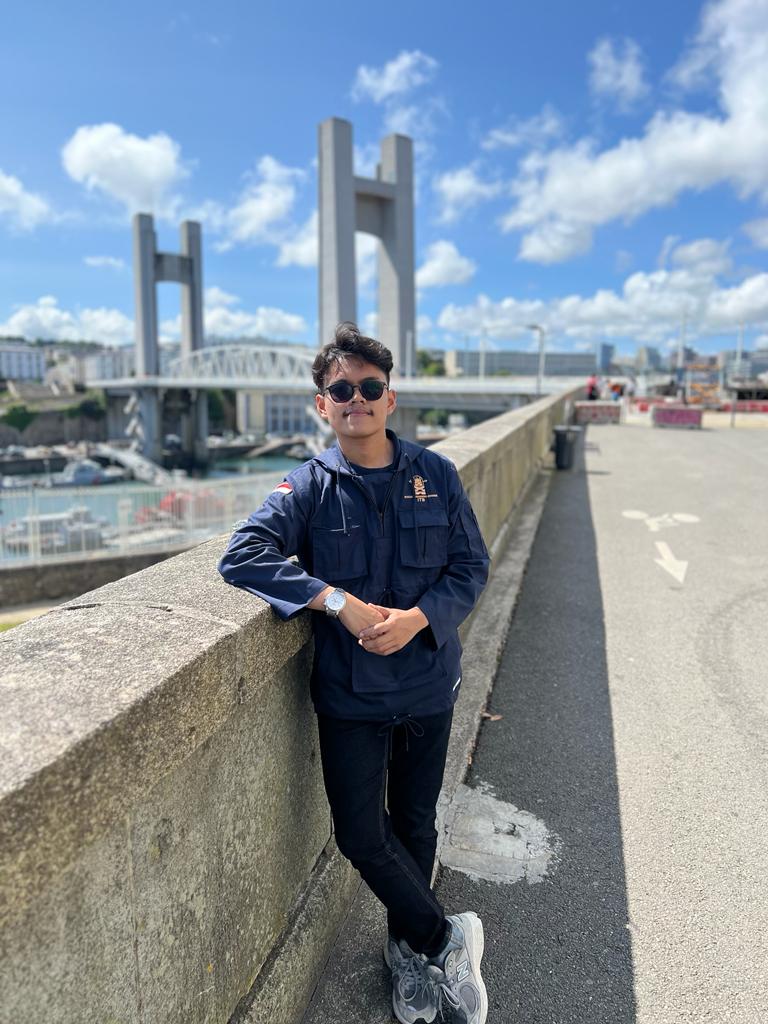
One of Brest’s landmark: Pont de Recouvrance
Upon arriving my 9-square-meter room with adequate facilities, I rested for a while because I couldn’t sleep on the train, while I needed to gather at the lobby by 08:00 to wait for the bus that would take me and the rest of the scholarship recipients to the French course venue. The first thing I noticed on my way to the venue was the vast ocean with many, many boats parked. As a port city, Brest has become the world’s lead on marine research area, in line with their massive investment on the marine and maritime affairs.
After around 45 minutes drive, we have arrived at Ciel Bretagne, our French course venue. Ciel Bretagne is affiliated with the Bretagne Ouest chamber of commerce and industry and has been teaching French as foreign language for 30 years. I was assigned in the beginner level, or A1. French courses were held every Monday to Thursday from 09:00 to 13:00, with an evaluation every Thursday. After the course, there were scheduled visits with free times scattered throughout the week. I really enjoyed learning in the classroom overlooking the sea with many boats parked and the view of the hills behind it. The French language was apparently pretty difficult for me. A lot of the words did not seem to relate to their pronunciation! Fortunately, the class was very interactive so it was still enjoyable.
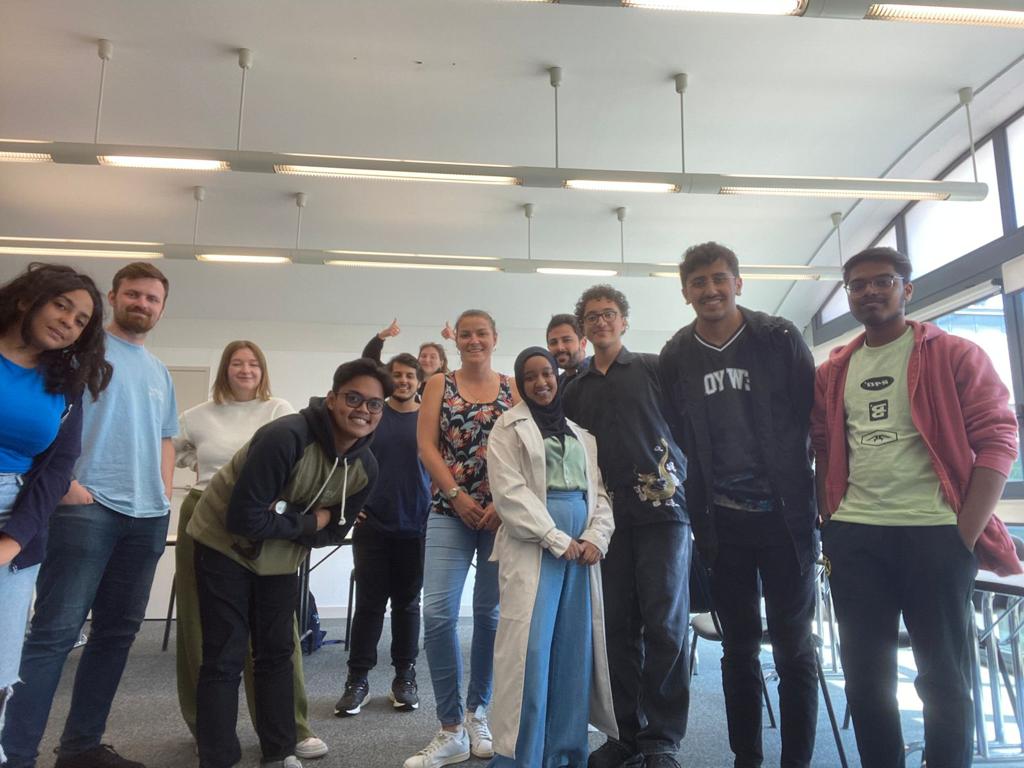
My classmates at Ciel Bretagne
We always had a break from 11:00 to 11:15, where we were allowed to go to the cafeteria to buy coffee and eat while getting to know each other. We shared insights about our respective countries and planned where to go after class and on the weekends. On the first day, there were no scheduled excursions after class, so we headed to the city centre to subscribe for the public transport ticket, picked up our allowance at Western Union, and bought basic necessities at the supermarket.
In Brest, public transportation is managed by a company called Bibus (similar to Transjakarta in Jakarta). The modes of transportation includes city buses, trams, and… cable cars! One-month subscription costs about 48 Euros. In the city, the cost for one meal is around 7 to 12 Euros. This is quite expensive considering our limited allowance of 320 Euros, but we made it through!
The thing I felt on the first day in Brest is that it is a quiet and calm city. Still with uniform buildings and houses, just like in Paris, but not many vehicles, especially motorbikes. Crowds can be found in the city centre or at the beach, since Brest is famous for its many beaches. Generally, shops are open only until 19:30. This is quite different compared to Indonesia!
Read Part 2 where I talk about my excursions!
